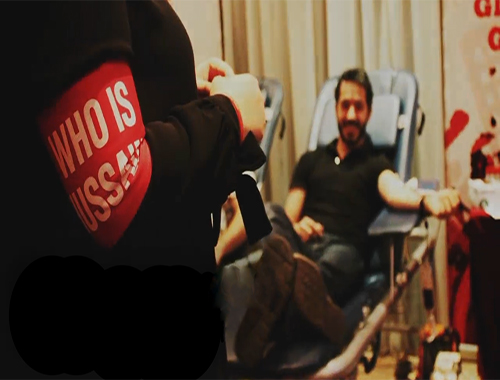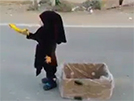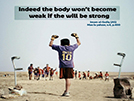Helping the oppressors in other matters
- Details
- Hits: 2178
Helping the oppressors in other matters
Helping the oppressors or tyrants in matters other than oppression; like to work as their personal assistant, to stitch clothes for them, or build their house or guard their property. All these types of jobs can be classified into Three categories:
(1) In some cases these jobs indirectly help in oppression; for example, if the tyrant had usurped a piece of land and orders a mason to build a house on it, or a cloth which has been obtained forcefully is given to a tailor to stitch a dress, or a person may be ordered to guard the money exhorted from innocent people.
There is no doubt that all such kinds of jobs are HarÄm. Because the use of things acquired by illegal means is HarÄm for the one who has acquired them or for anyone else who is aware of their contraband nature.
(2) The second category is of those jobs which are not direct acts of oppressions or which do not help in oppressing, but since the one who is involved in them is associated with the tyrants and the common people consider him to be a part of that oppression; it is HarÄm. His presence may encourage the tyrants, consequently his name is also included in the list of oppressors. He is also counted among those who usurp the rights of people. All these are HarÄm according to numerous traditions. Imam Ja’far as-Sadiq (a.s.) says:
“One who has his name registered in the office of Bani Abbas will be raised on the Day of QiyÄma in the form of a pig.”
(Wasa’il ul-Shia)
In another tradition he says that such a person will be brought in the form of a black pig. Imam (a.s.) has also said,
“Do not help the oppressors in the construction of mosques.”
(Wasa’il ul-Shia)
Ibn Abi YÄfur says that I was in the company of Imam Sadiq (a.s.) when one of the Shias came and spoke to Imam (a.s.). He said, “May our lives be sacrificed for you! Some of our people have problems in obtaining livelihood whereas there are vacancies in the establishments of Bani Abbas for construction of buildings and digging of canals. So what is your opinion regarding this?”
Imam (a.s.) replied:
“I don’t like to tie even a knot, or the mouth of a water bag or the strap of a purse for them. Even if they were to pay me with Madinah and whatever is in it. I do not like that I help them even as little as the ink at the tip of a pen. Without any doubt, the oppressors will remain standing at the verge of Hell-fire till the time Allah decides about all others.”
Muhammad bin AzÄfar says that Imam Ja’far as-Sadiq (a.s.) told his father,
“I have come to know that you deal freely with Abu Ayyub and Abu Rabie. Then what would be your condition when your name will appear in the list of the helpers of tyrants?”
Hearing this command the father became aggrieved. When Imam (a.s.) saw his restlessness he said,
“I have only warned you of that about which the Almighty has warned me.”
The narrator says, “My father remained sorrowful for the rest of his life.”
(Wasa’il ul-Shia)
Imam Ja’far as-Sadiq (a.s.) says, “It is incumbent upon Allah to raise you on the Day of QiyÄma with the same group from which you derived benefits in this world.”
The Imam (a.s.) has also mentioned the incidents when some of the followers of Hazrat Musa (a.s.) decided to support Fir’on for worldly benefits and secretly planned to change sides. When Musa (a.s.) was about to win, they enrolled as his supporters, but it so happened that when Fir’on and his soldiers were about to be drowned and these people made a bid to cross to Hazrat Musa’s side, the Almighty Allah caused their horses to perish and they also drowned with Fir’on and his army.
(Wasa’il ul-Shia)
Our beloved Imam (a.s.) has the following advice for us:
“Fear Allah, strengthen your faith with an uncomparable Taqiyya and avoid presenting your needs to the ruler. And if a person is respectful to an irreligious man, Allah will degrade him and will consider him His enemy and leave him on his own. And if he receives any monetary benefit from this man, Allah will remove barakat from it. And if he uses this money to perform Hajj or emancipate slaves, or for any other benevolent deed, he will not get any reward for it.”
(al-KÄfi)
‘Ali bin Abi Hamza says, “One of my friends was a scribe in the employ of Bani Umayya. One day he requested me to take him to Imam Ja’far as-Sadiq (a.s.). I took him to Imam (a.s.). He saluted and said, ‘May my life be sacrificed upon you, I had been in the employ of Bani Umayya as a scribe and have earned a huge amount of wealth without giving any thought to right or wrong.’ Imam (a.s.) said,
‘If people like this had not been in the service of Bani Umayya to write letters for them, collect their wealth for them, fight their enemies and attend their assemblies, they (Bani Ummaya) would not have usurped our rights. And if they had been left alone they would not have been able to accumulate any wealth more than what they had.’
The man said, ‘May I be sacrificed for you, can I attain salvation after what I have done?’ Imam (a.s.) said,
‘Separate whatever wealth you have earned from them and try to return it to the rightful owners if you know them. Whatever you cannot deliver should be given as charity (Sadaqah) on their behalf so that I can guarantee that Allah will send you to Paradise.’
Upon hearing this, the young man bowed his head thoughtfully for sometime. Then he raised his head and said, ‘May I be sacrificed on you, I will do as you have ordered.’ After this he accompanied me to Kufa and returned all his wealth to the rightful owners as much as it was possible; the rest he gave away as Sadaqah. He even gave up the dress he was wearing. I procured some money for him and bought him a dress and gave him some amount for his expenses. After some months he fell ill and I paid him a visit. I found that he was in a very serious condition. He opened his eyes and told me, ‘‘Ali ibn Abi Hamza, by Allah, your Imam (a.s.) has fulfilled his promise.’ He died soon after. I supervised his final rites and returned to Madinah to meet Imam Ja’far as-Sadiq (a.s.). Imam (a.s.) said,
‘O ‘Ali! I have fulfilled my promise to your friend.’
I said, ‘May I be sacrificed upon you! You speak the truth, because my companion testified to it at the time of his death.’”
(Wasa’il ul-Shia)











